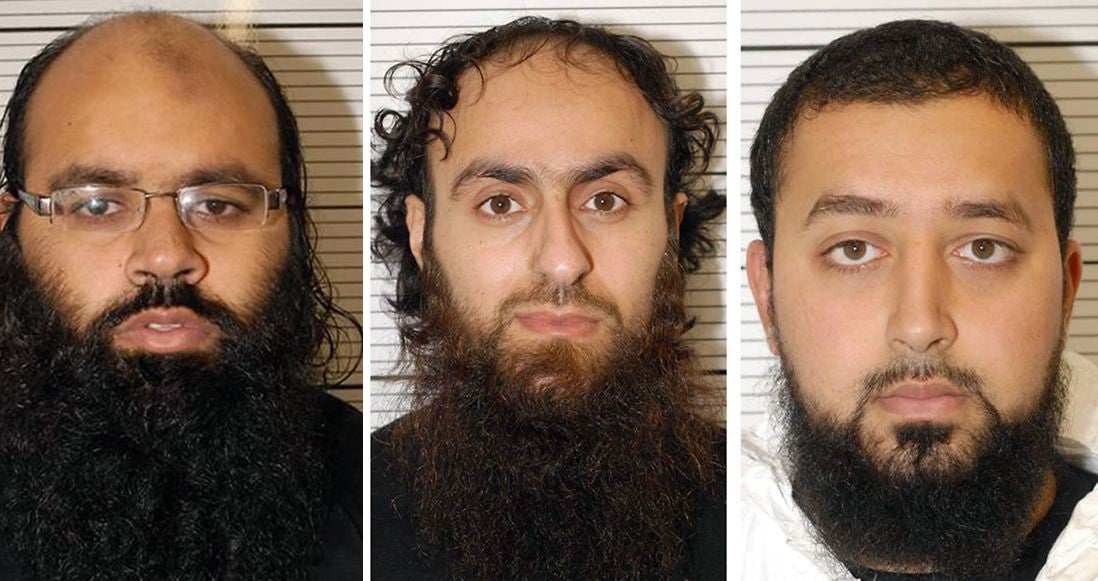
Irfan Naseer
Irfan Naseer, a 23-stone ‘mummy’s boy’ who was too fat and unfit for terror training was the unlikely head of a British cell that aimed to wreak destruction on the scale of the September 11 attacks in the United States.
However the heavyweight Naseer, 31, known as Chubbs or Big Irfan, managed to build surprisingly good contacts with overseas terror groups and had the technical knowledge to build a bomb from his training and his 2:2 degree in pharmacy from Aston University.
Naseer, of Doris Road, Sparkhill, and his lieutenant, Irfan Khalid, were monitored by police after their return from a second trip to Pakistan in 2010/11. Although no target was ever identified, Naseer, who was unemployed, gave the most telling detail of the plot. “Seven or eight different places with timers on at the same time: boom, boom, boom,” he said.
His murderous intent was made clear when he complained of a missed opportunity by the 7/7 bombers, who killed 52 people, for failing to put nails into their bombs.
The judge told him: “You are a highly skilled bomb maker and explosives expert. You sought to persuade others that a terror plot here in this country was by far preferable to fighting jihad abroad.”
Irfan Khalid
Naseer’s number two – inevitably called Little Irfan –repeatedly encouraged his accomplices to follow through the instructions of his al-Qa’ida trainers to carry out the attack in Britain.
During their broad-ranging discussions about how best to kill people, Khalid, 27, had talked about fitting blades to a truck inspired by an article in an outlawed extremist magazine about the “ultimate mowing machine”.
Khalid, also known as Sylvester, is heard on the bugged conversations jokes that there would probably be no remains of them left to bury after a suicide attack. On one he is heard to say: “It’s the four suicide bombers driving around ready to take on England. Oh my God take them out.”
When police arrested the plotters in September 2011, police found nearly £6,000 in a money belt in his bedroom of the family home and large amounts of extremist literature.
Lectures by one of the group’s inspirations, the US-born cleric Anwar al-Awlaki, killed in a drone strike several weeks after they were arrested, were found on a computer. They included “Stop Police Terror”, “It’s a War against Islam” and “Brutality towards Muslims”.
At one point, Khalid, an unemployed security officer, counselled his co-plotters to carry out a smaller attack to avoid detection. He, however, never expressed doubts about the project saying of the July 7, 2005 attacks that it was “the greatest work. You can’t get bigger than that.”
Ashik Ali
Ashik Ali, 27, has the dubious distinction of being the only would-be suicide bomber in Britain to make a confession to police. Ali, an unemployed former charity worker, said during interview that the two Irfans were planning a plot involving suicide vests and bombs.
He indicated that soldiers were the target but was never specific. He claimed that the two men were not serious and he would have told the authorities if he ever believed they were. He was the only one of the three on trial who did not travel to Pakistan but was involved in fund-raising, recruitment and attack planning.
His house in Turner Street, Sparkbrook, became the bomb-making factory for the plotters but was infiltrated by investigators who planted a bug inside.
Ali had separated from his wife, Salma Kabal, who had tried to rekindle their marriage in a meeting recorded by counter-terrorism police. Ali attempted to tell her that they did not have a future together but said that that they were one man short of “Four Lions” – the name of a film about four incompetent jihadists.
Rahin Ahmed
The incompetent chief fundraiser managed to lose £9,000 when he went off to make a cup of tea while his online investments crashed. It was the “most expensive cup of tea we have come across in anti-terrorism work,” according to a security source.
Ahmed, 26, was the fourth member of the management team but lost the trust of his accomplices after his blundering financial efforts. The unemployed law graduate, born in Bangladesh but brought up in Birmingham, collected money for the charity Muslim Aid since 2009 and joked with of staff that he was stealing funds. He was.
One senior figure in the community reported peering through the window of his car and seeing piles of collection boxes and cash spilling out of the pockets in the driver’s door. Ahmed was from a hard-working family – his father was a taxi driver – but he had increasingly turned to religion. His increasingly hardline views and arrogant attitude had seen him get involved in a fight at a mosque during Friday prayers just before he was arrested, according to a source.
